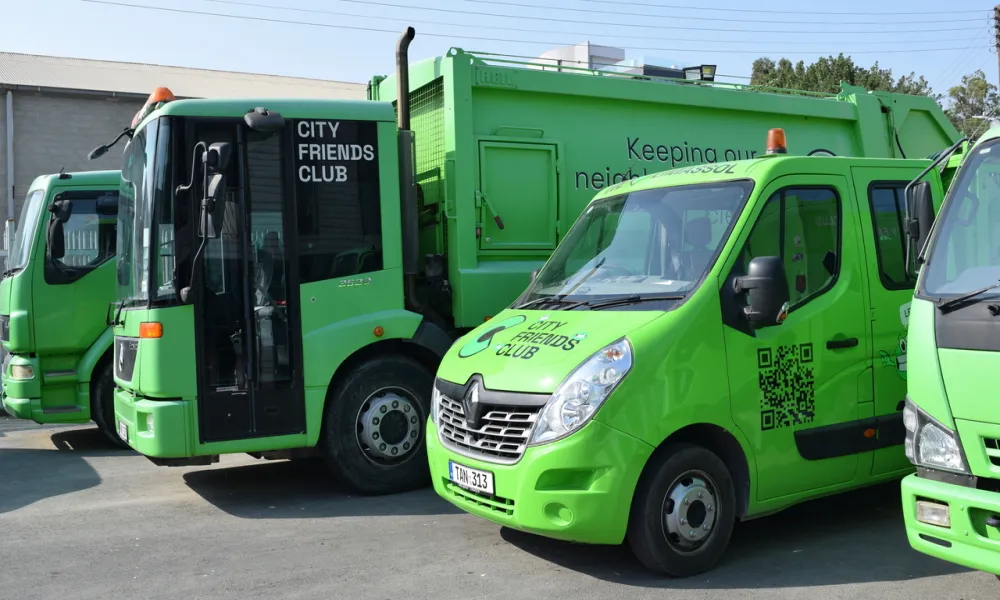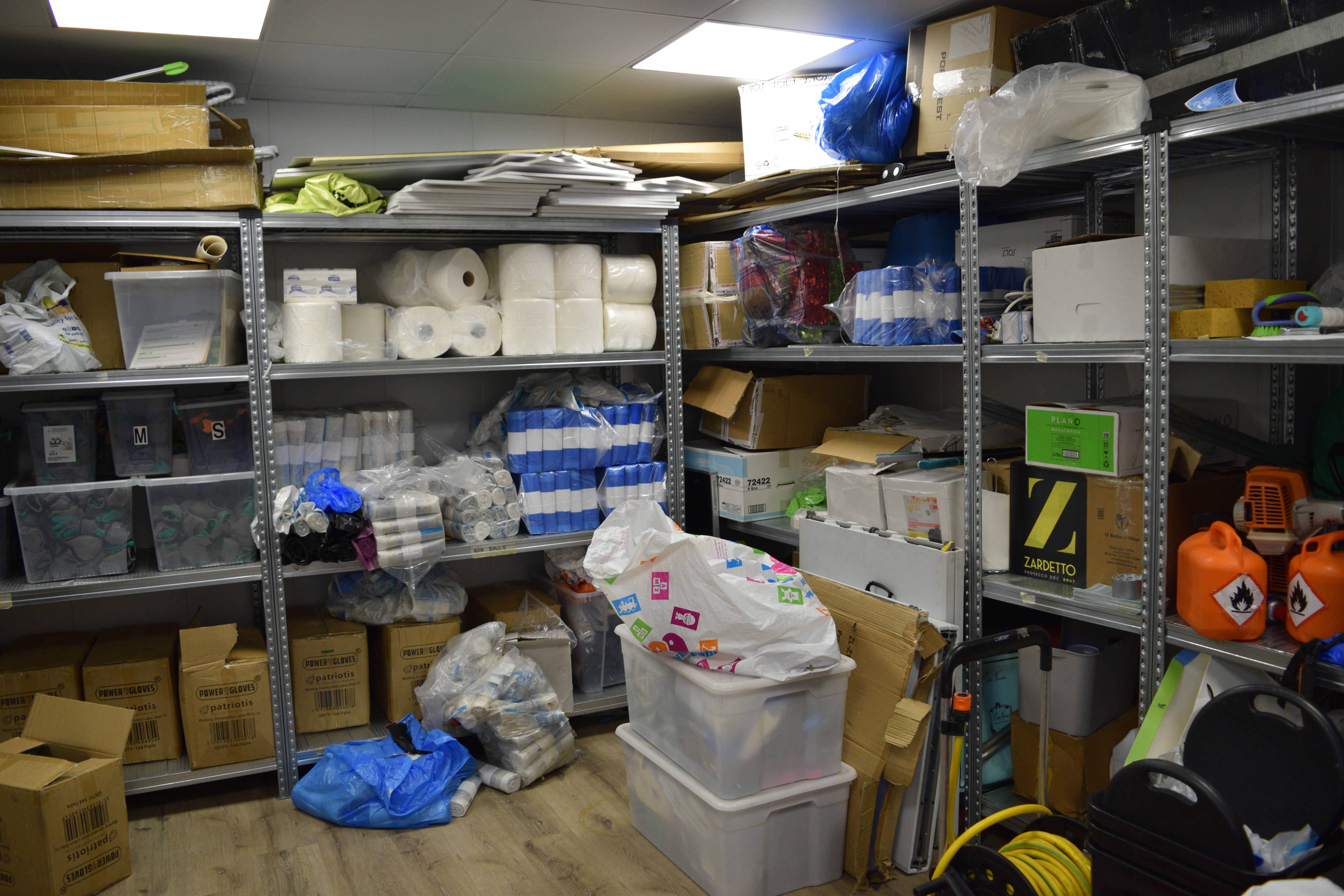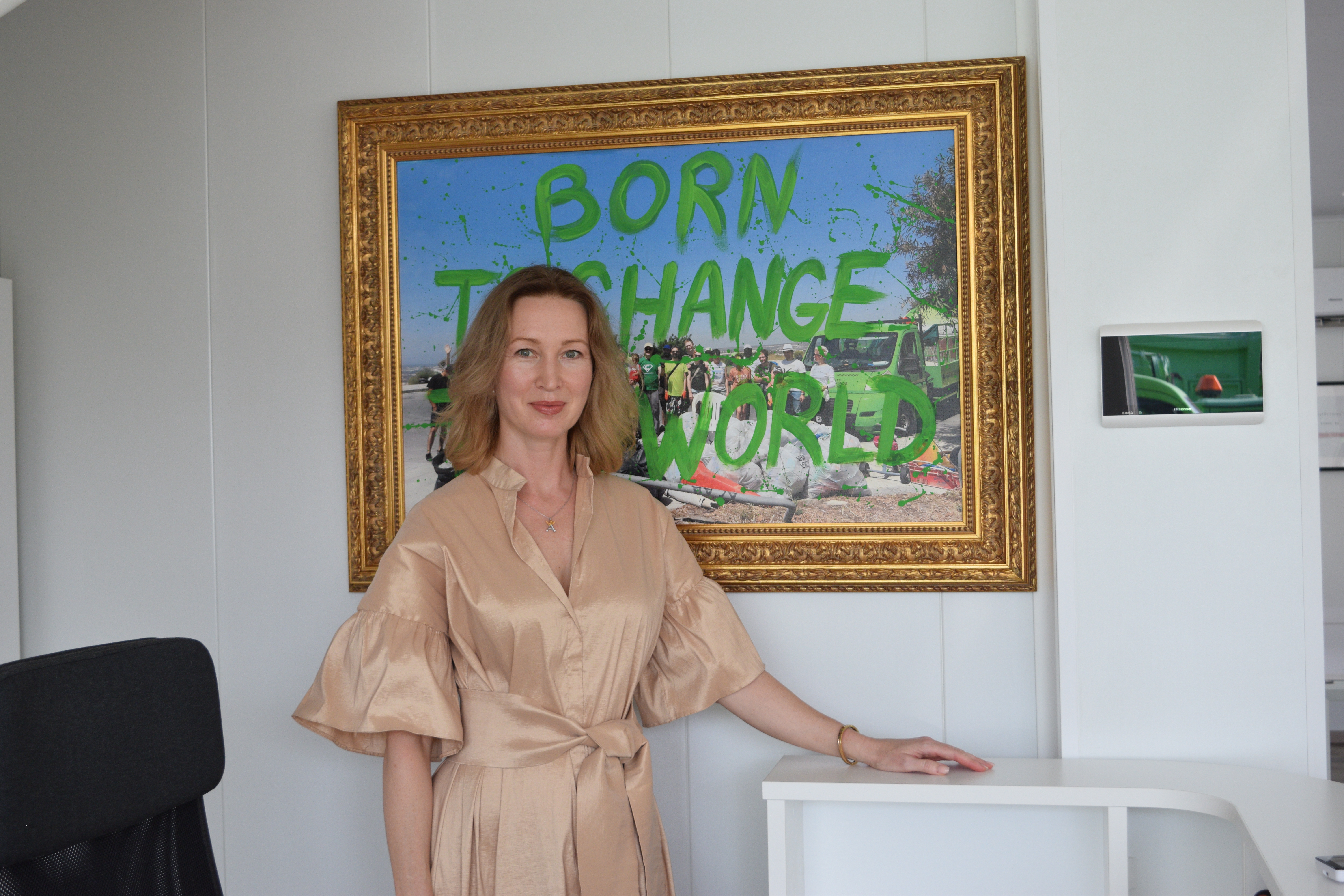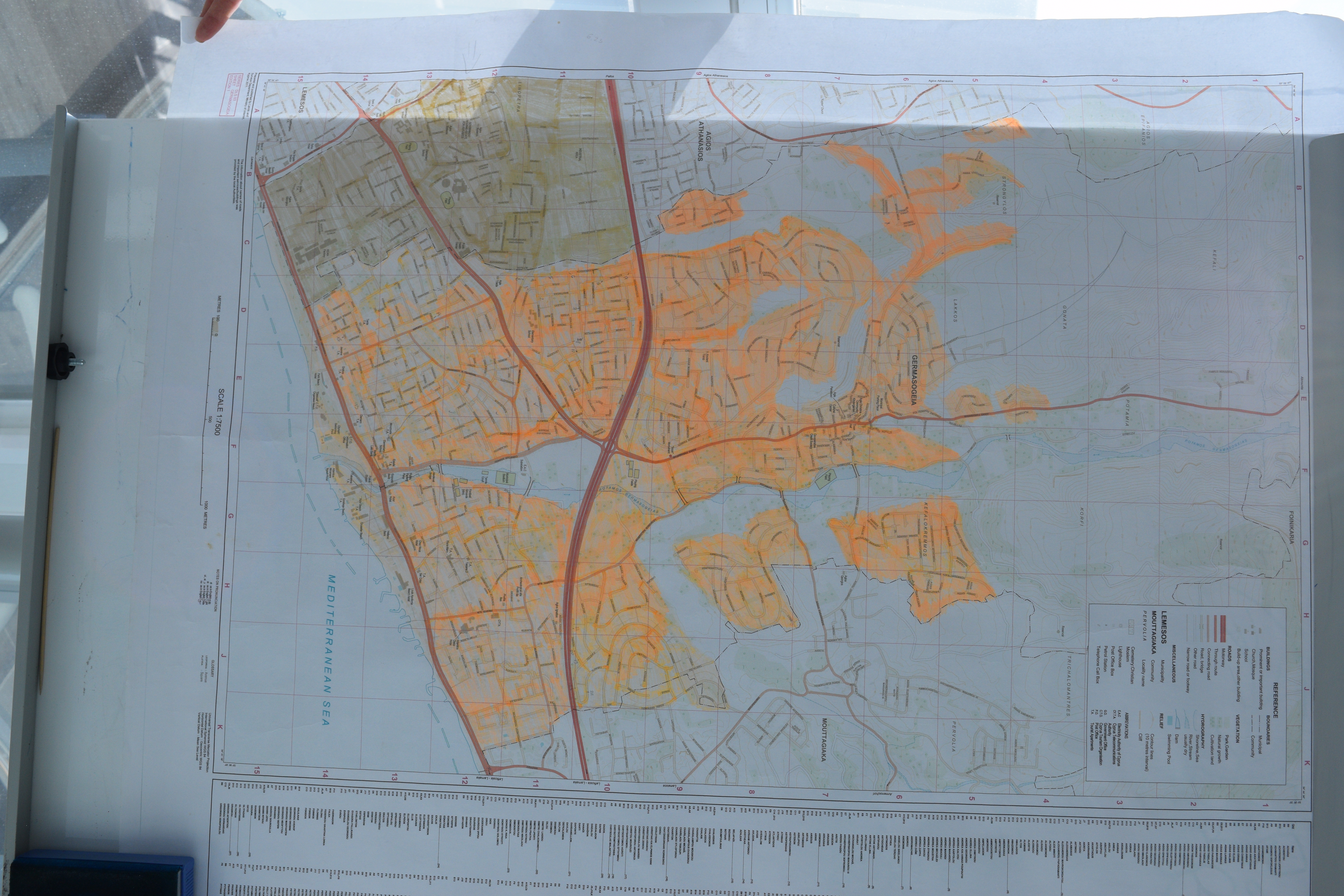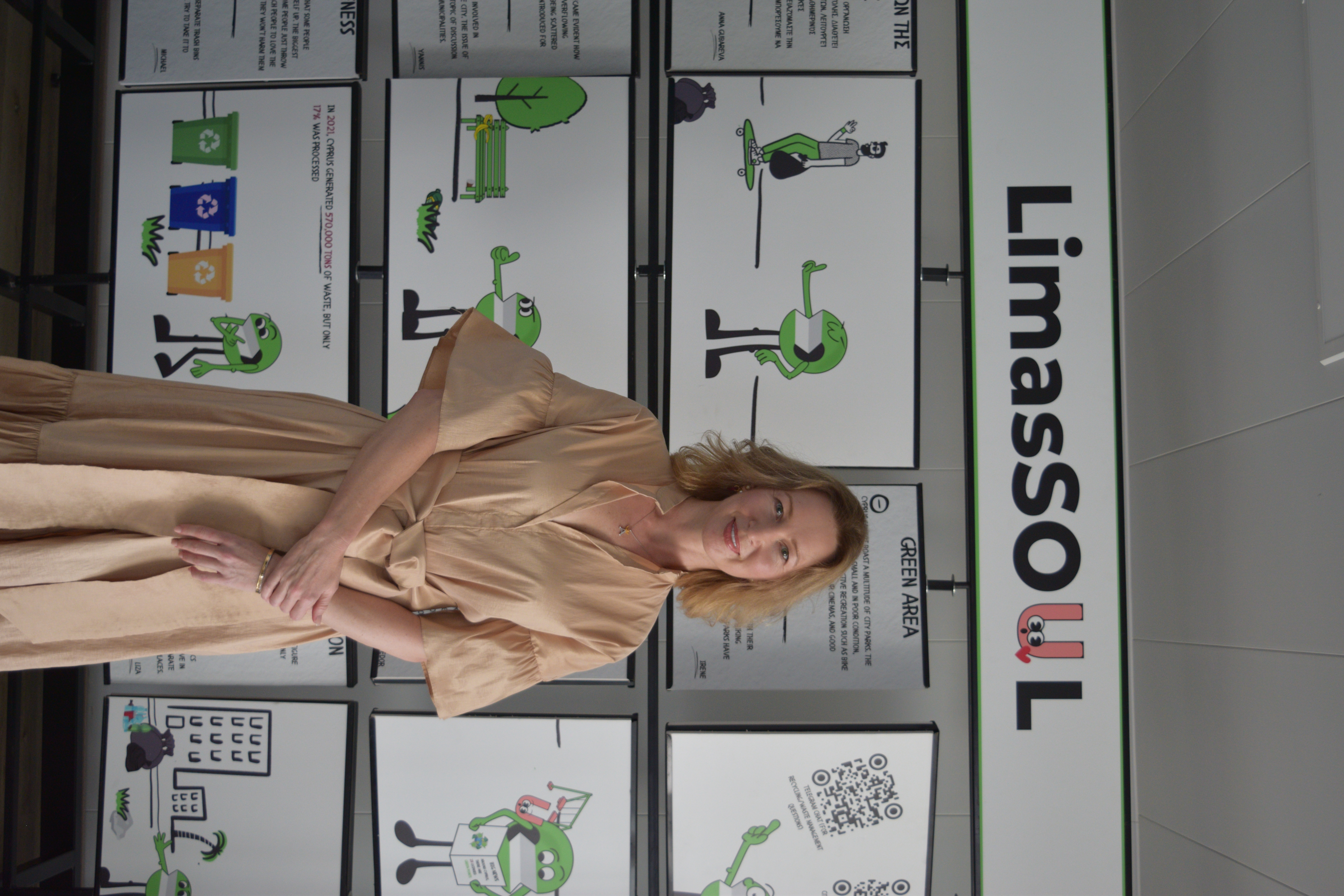The morning begins with a chime, a notification from the City Friends Club’s digital alert system. Somewhere in northern Limassol, a public garbage bin is overflowing, with rubbish spilling out onto the surrounding area. It’s not on today’s cleaning schedule, but it will be soon. From the upstairs office of the group’s headquarters, Anna Gubareva peers through a wide window onto the street below.
On the pavement, two green trucks idle in the soft light. The drivers have just received a revised map, the new route now inked in red. Within moments they’re on their way, carrying not only empty bins for collection but bags of tools, gloves, and supplies stacked high in the back. The engines hum, then fade into the city’s morning rhythm.
For Anna, this blend of split-second coordination and steady, strategic planning is now second nature. It’s been five years since she founded City Friends Club, a turning point that came not from inspiration alone, but from a simmering dissatisfaction.
“When I first moved to Cyprus, as a foreigner, I found myself having to adjust to a different kind of architecture, a different rhythm to the streets, a new sense of order,” she recalls later. “At some point, I decided that the way forward was to integrate by taking action and being part of the change.”
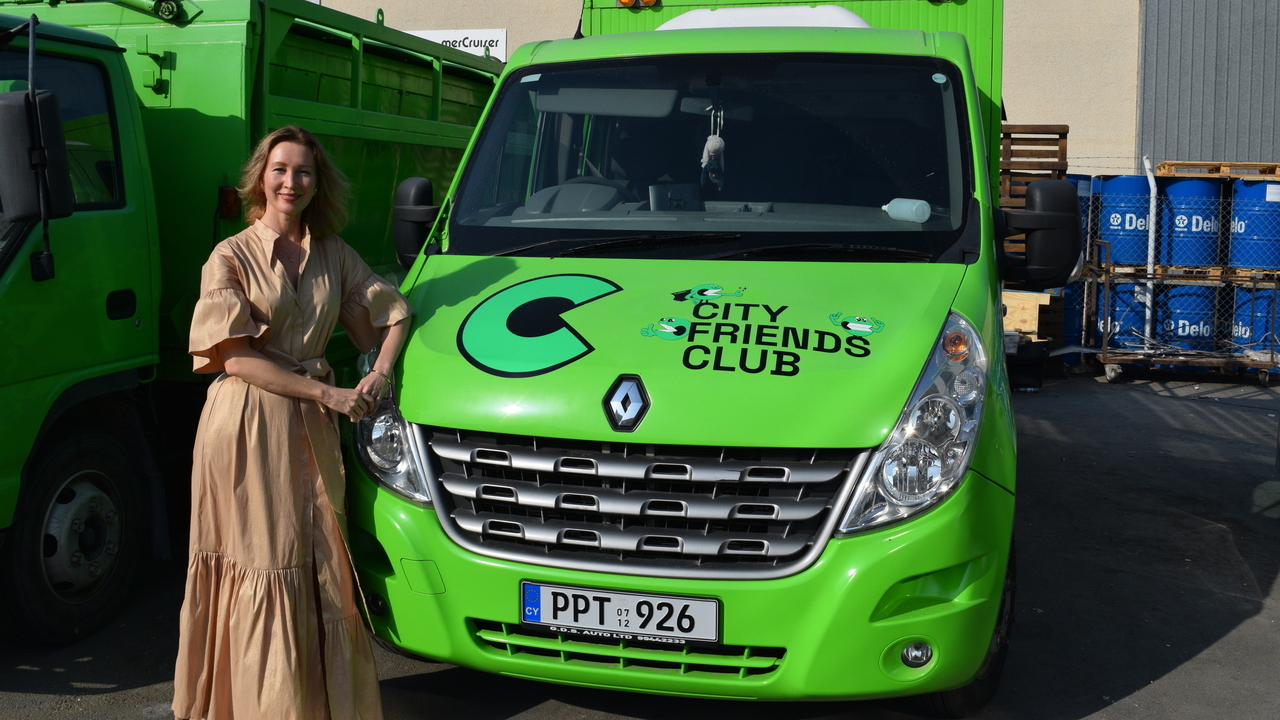
From gloves to official green trucks
City Friends Club began as a loose group of volunteers gathering for weekend cleanups, no bureaucracy, no delays, just people picking up rubbish. These early actions did more than clear streets and parks; they built a network of residents and local companies who believed in environmental responsibility.
With time, the initiative formalized, securing licenses and partnering with municipalities. Transparency became a core principle: every year, the club publishes open reports detailing the kilograms of waste removed from streets and natural spaces. But Anna explains that numbers aren’t the only measure of success, for the Club it is also about participation and understanding how personal choices impact ecosystems.
“It’s also about who is walking this path with us. Families joining cleanups together, students starting their own projects, locals swapping disposable coffee cups for reusable ones - those are shifts in mindset,” Anna says.
A city’s plain boxes turned into art
In Limassol, the relentless scrawl of spray paint over street signs, walls, and public fixtures feels almost like an epidemic, leaving many to wonder how the cycle can be broken. Anna hasn’t cracked the code, but her Graffiti Friends Club is nudging the city in a brighter direction by turning vandalism-prone transformer boxes and parking walls into artworks that people actually want to protect.
Around midday, Anna takes a call about Graffiti Friends Club, one of the club’s most eye-catching side projects. The idea: transform the city’s plain white transformer boxes, that are prone to vandalism, into vibrant works of public art.
On the wall behind her hangs a photograph of one such box, now covered in a lush, painted forest scene. The artist’s work has stayed untouched for years, protected by an unspoken street-art code that recognised talent is respected. “We decided to bring that feeling into the city through art inspired by nature and culture,” she explains, noting that the project also saves the electricity company repainting costs. The goal, for the Club is that at some point the savings will be funding more murals and compensating the artists.
The roots of her commitment
In Anna’s story, the seeds of activism were planted long before City Friends Club existed. Her mother worked in environmental protection, showing by example that sustainability comes from daily effort, not declarations. The day the club received its first award from Limassol municipality, her mother stood beside her - a moment Anna describes as a generational passing of values. Her husband, entrepreneur and investor Alexey Gubarev, has also been instrumental, providing start-up capital, purchasing equipment, and lending the business expertise needed to evolve from an informal group into a structured organization.
Festivals, workshops, and the next generation
Late afternoon at City Friends Club headquarters often buzzes with activity. Today, a team is unpacking boxes for another event; displays made from recycled materials, panels for before-and-after cleanup photos, and tools for an upcycling workshop.
“We want environmental awareness to feel bright, engaging, hopeful,” Anna says, “not driven only by fear or restrictions.” Festivals and exhibitions act as an entry point for people who may not think of themselves as “eco-active,” giving them tactile, inspiring encounters with sustainability.
In a side room, two young volunteers are setting up art supplies for a children’s event. Engaging the younger generation is one of Anna’s top priorities. This year, the club will launch a pilot environmental program in three municipal schools in Paphos, backed by the Ministry of Education, a curriculum adapted to different ages and designed to be replicated across Cyprus.
Looking ahead
As the day winds down, Anna steps outside into the fading light. The trucks have returned from their routes; the morning’s overflow bin has been emptied, its contents already sorted for recycling. A small group of teenagers arrives for a graffiti workshop, laughing as they haul spray cans and stencils from their backpacks.
Anna’s vision stretches far beyond Limassol; an island-wide movement woven into Cyprus’s cultural fabric, where environmental care is the norm, not the exception. With international certification on the horizon and partnerships deepening, she believes the model they’ve built can be replicated anywhere.
In her world, change is made in increments: one overflowing bin emptied, one transformer box painted, one child planting a tree. Small acts, multiplied by many hands, adding up to something big enough to last.
In many ways, City Friends Club has become a bridge between communities. Cyprus has long been a crossroads for people from all over the world, and Anna has seen how foreigners who once felt like outsiders now invest their time, skills, and energy into the place they call home. From weekend cleanups to art projects and school programs, these residents are no longer just spectators, they’re active contributors instead. “When you give something of yourself to a place,” Anna says, “you start to love it more deeply.” It’s a sentiment that has turned individual acts of care into a shared culture of stewardship, where newcomers and long-time locals alike work side by side for a cleaner, more vibrant, more inclusive Cyprus.
